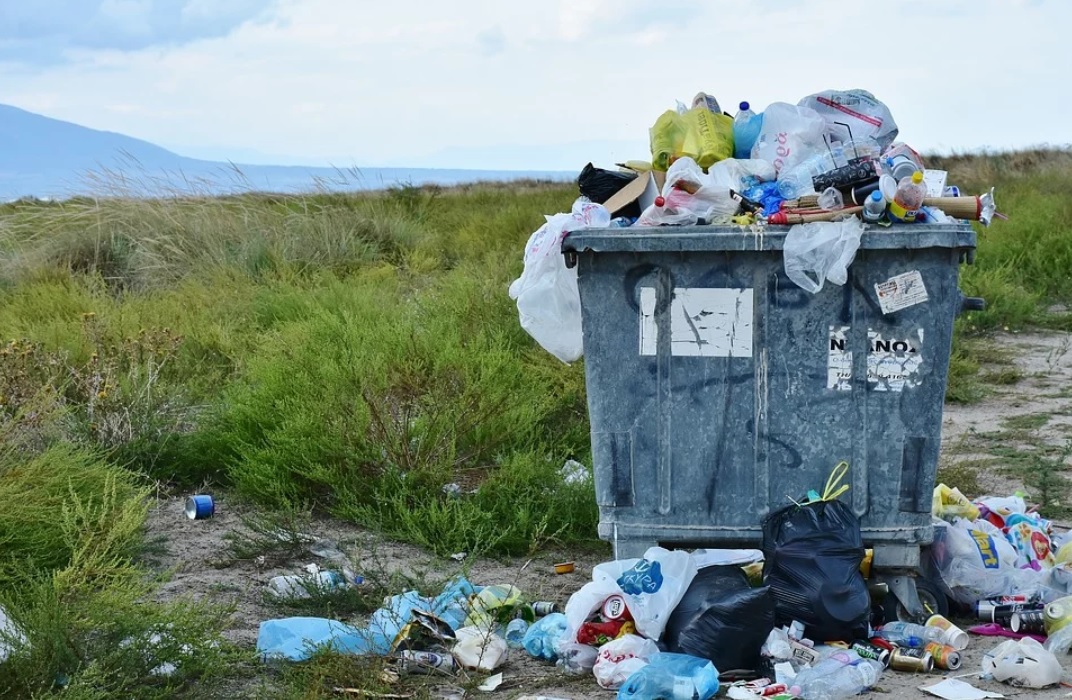Kenya on plastic ban: How far it has worked, country set to take next step
Since the implementation of ban, the government of Kenya says that 80 percent of its population have stopped using plastic carrier bags. In 2018, 18 people who were found guilty in a court in Mombasa were fined USD 300 or sentenced to 8 months in jail.

The Government of Kenya announced a ban on the manufacture, use and import of all plastic bags in March 2017 after a study supported by the National Environmental Management Agency found plastic bags in the rumen of slaughtered livestock from three notable abattoirs. The study revealed that over 50 percent of cattle near Kenya’s urban areas had plastic bags in their stomachs. Apart from plastics, other materials found in the rumens are nylon strings and synthetic hair. Earlier before the implementation of ban, tens of millions of plastic bags were handed out in supermarkets every year in Kenya.
The Kenyan authorities are claiming victory these days after the government announced a ban on plastic bags around 1.5 years ago. Kenya’s neighbouring east African countries like Burundi, Uganda, South Sudan and Tanzania are pondering over to follow similar route seeing Kenya’s success. The government of Kenya implemented the draconian ban on August 28, 2017, the law upon violation would imprison the guilty up to four years or fine USD 40,000 for manufacturing, importing or selling a plastic bag. Using the banned bags carries a fine of more than USD 500 or a jail term of up to a year.
Has the ban worked?
Since the implementation of ban, the government of Kenya says that 80 percent of its population have stopped using plastic carrier bags. In 2018, 18 people who were found guilty in a court in Mombasa were fined USD 300 or sentenced to 8 months in jail. Reduction in litter contributes to cleaner environment that also makes Kenya as one of the most popular travel destinations in Africa.
During the mid of February this year, three fruit sellers in Kenya’s capital, Nairobi were arrested for using plastic bags. The men were selling passion fruits, plums and sugarcane. Around 500 pieces of plastic bags were seized and they were presented at the court. Many people started to criticize the government for arresting fruits sellers. People over social media reminded the government of its duty to ensure sustainable alternative hygienic packaging options as the ban on plastic continues to run. Esther Passaris, a member of Parliament-cum-social entrepreneur said that the government of Kenya must be more focussed on those companies which are still manufacturing plastics instead of punishing the people who still use the banned products.
It’s true that the ban on plastic has reduced its usage but it has brought an upsurge of the utilization of reusable synthetic bags. These products may not be as eco-friendly as they are considered to be. For example, Environmental Sciences and Technology published a study that found self-tagged ‘eco-friendly’ bags of a brand didn’t totally degrade after 3 years buried in garden soil, exposed to open sunlight or air, submerged in ocean water or stashed in the laboratory.
On the other hand, a major issue in Kenya is plastic’s continuous use despite its ban since August 2017. One reason for it is the illegal import of plastic from neighbouring countries. “The sheer number of people crossing, combined with the availability of plastic bags on the Ugandan side, means sneaking them across the porous border is relatively easy,” the UN Environment Program revealed.
The country is still unable to generate alternate jobs for those who lost their jobs with the implementation of plastic ban. Kenya was home to 170 plastic producing companies that used to employ 3 percent of the workforce before the implementation of plastic ban. As the customers are not ready to pay extra bucks for fibre bags, the business of its production is unable to boom. Thus, the alternative options are still at a nascent stage to tap the market, bring earnings to those who lost their jobs and most importantly emerge as 100 percent biodegradable bags.
Kenya’s next step on plastic bottles’ ban
Kenya is all set to take another step starting June this year. Uhuru Kenyatta-led country will ban plastic bottles in protected areas starting June 5, 2020 with a major objective to conserve national parks and game reserves. The government is currently holding rounds of discussions with relevant stakeholders to ensure successful enforcement of total plastic bottles’ ban in beaches, forests, wildlife sanctuaries and conservation parks.
Despite plastic bottle manufacturers’ rallies against government’s efforts, a policy brief from Kenya’s Ministry of Environment states that one-time use of plastic bottles has constituted the biggest challenge to solid waste management in the country. The random and haphazard discarding of plastic bottles has spoiled the drainage system posing a severe threat to human health.
(Disclaimer: The opinions expressed are the personal views of the author. The facts and opinions appearing in the article do not reflect the views of Devdiscourse and Devdiscourse does not claim any responsibility for the same.)
Also Read: How Liberia can make strides in quality education, reduce illiteracy rate
- FIRST PUBLISHED IN:
- Devdiscourse








